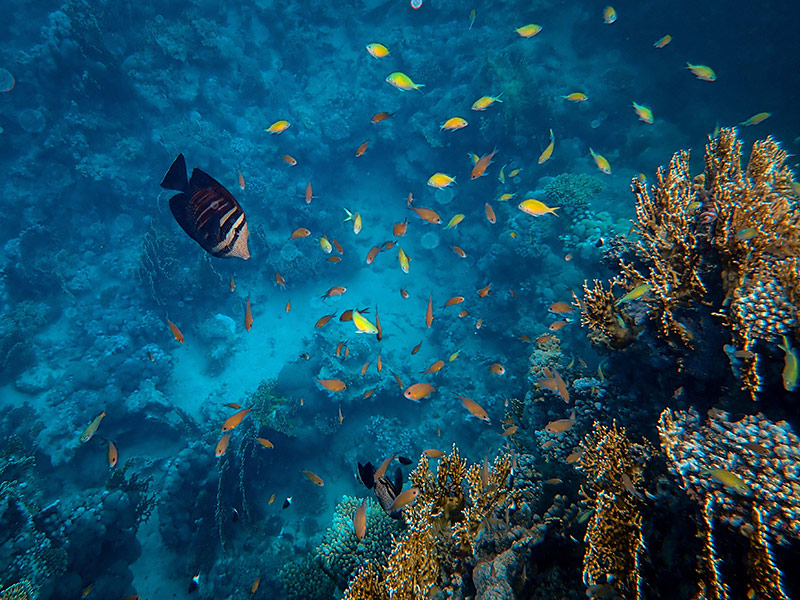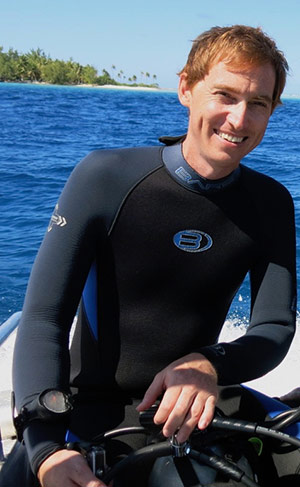UNB researcher helps refute findings on effects of ocean acidification on reef fish
Author: UNB Newsroom
Posted on Jan 8, 2020
Category: UNB Saint John

An international research team that includes a University of New Brunswick faculty member has published findings that challenge previous research about the impact of carbon dioxide on coral reef fish behaviour.
Dr. Ben Speers-Roesch is an associate professor in biological sciences at UNB Saint John and is one of four Canadian members of the team.
The paper was recently published in Nature, one of the most prestigious and recognized journals in the world. It is the result of three years of scientific research by an Australian-led team spanning five countries.
The large-scale study, led by Dr. Timothy Clark, an associate professor at Deakin University, is a comprehensive re-assessment of past experiments investigating the impact of increased ocean CO2 levels on three major areas of fish behaviour. The research team sought to reproduce and verify prior findings concerning coral reef fish species’ response to chemical cues in the water indicating the presence of predators, fish activity levels and brain function across hemispheres.
Previous research had identified significant and alarming effects of end-of-century CO2 levels – the levels of ocean carbon dioxide predicted to exist at the end of the current century due to climate change – on these behaviours.
 Although Dr. Speers-Roesch and his colleagues went to great lengths to replicate the experimental parameters of these previous studies, they were unable to reach these same conclusions.
Although Dr. Speers-Roesch and his colleagues went to great lengths to replicate the experimental parameters of these previous studies, they were unable to reach these same conclusions.
“Using rigorous and transparent research practices, we were unable to replicate these findings, instead discovering that ocean acidification has negligible effects on coral reef fish behaviour,” said Dr. Speers-Roesch. “By using a combination of experimental work and statistical modeling, we were able to refute the previous findings while also showing their statistical improbability.”
“We expected previous results would be easy to repeat because of how clear and strong they appeared in the initial papers. Instead, we found consistently normal behaviours in fish that we acclimated to end-of-century levels of CO2," said Dr. Clark.
However, the researchers caution that while ocean acidification levels may not have a direct impact on coral reef fishes, climate change and increasing carbon dioxide levels still present a clear danger.
“Although we have shown that ocean acidification is unlikely to cause any problems for coral reef fish behaviour, there is considerable evidence from other research groups that ocean acidification and warming due to climate change pose a grave danger for coral reef ecosystems, in particular for the corals that are fundamental to their health,” said Dr. Speers-Roesch.
In a commitment to further improving scientific knowledge and supporting future study, the research team has made all the data collected, as well as the code used for statistical processing, available in an open and freely accessible form.
Dr. Speers-Roesch’s research work was supported by a Natural Sciences and Engineering Research Council of Canada (NSERC) Discovery Grant and by a Harrison McCain Young Scholars Award.
Media contact: Jeremy Elder-Jubelin
Photo: Dr. Ben Speers-Roesch. Credit: Stephanie Avery-Gomm
